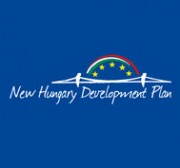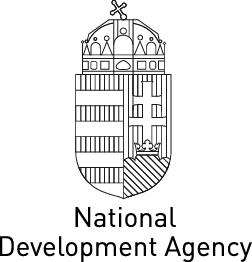Equal Opportunity and Modern Environment Created in a Primary School in Csongrád11 March 2010
 Count István Széchenyi Primary School, which was renewed with the help of EU funding amounting to more than 120 million HUF, was ceremoniously handed over on 10 March. Energy systems were made more efficient, handicap access was created, the building was repainted inside and out and the gymnasium was renewed within the framework of this investment.
Count István Széchenyi Primary School, which was renewed with the help of EU funding amounting to more than 120 million HUF, was ceremoniously handed over on 10 March. Energy systems were made more efficient, handicap access was created, the building was repainted inside and out and the gymnasium was renewed within the framework of this investment.
The Count István Széchenyi Primary School, which school is in a special situation, has been a member of the Csongrád Micro-region Unified Primary Education Institution since summer 2007. Numerous disadvantaged children and children living on farms in the surrounding area attend this school situated on the outskirts of the town, which is why it is exceptionally important for these children to be able to study in a school offering high standard integrated education. Even before this development was implemented, teachers made every effort to help students develop their skills and abilities as best possible, prioritise child-centric education and create equal opportunity, for which external conditions are now also in place.
The Temporary Home for Children and the Student Hostel operating in the immediate vicinity of the primary school accommodates students in need of a family environment, which is a unique form of accommodation in this micro-region.
Before submitting their application, the financing body of the institution, namely, the Csongrád Micro-regional Multi-purpose Association, consulted with a rehabilitation engineer to be able to transform the building as conveniently as possible, which expert provided assistance throughout the entire construction period and compiled an equal opportunity situation assessment and action plan. The latter was needed on account of how the majority of children with special educational needs and disadvantaged students struggle with adaptation problems, as a consequence of which they have poorer grades and only a few students continue their education.
Major changes took place in this institution as an outcome of the approval of EU funding amounting to over 120 million HUF. The entire electricity network was renewed, which is now suitable for hosting a high standard IT system. Flat panel heaters were installed, old windows and doors were replaced with new ones and the external facade was coated with new plaster within the framework of heating upgrade activities. The attic space was also insulated and the roof and gutters were renewed. The toilet and sanitary block was transformed and the water and sewage system was modernised.
Easy access to the building has been created for people in wheelchairs; disabled persons can now conveniently get around the building and several toilets have also been transformed.
The distinctly separated three courtyards, the garden and the playground offer ample opportunities for engaging in active outdoor activities; at the same time, children will now also be able to play sports in the gymnasium, since its floorboards were also replaced with the help of the funding granted.
Developments were also carried out at the Student Hostel, as an outcome of which students can now be accommodated in an even more pleasant environment.
The funding that was granted was used to complement equipment procurements approved under SIOP to be able to provide high standard competency development for students, which may help them acquire the knowledge they effectively need.
Thanks to the development that has just been handed over, this micro-regional school has set up conditions underpinning quality education, which contributes to reducing failures experienced by students at school, the suitable integration of children with special educational needs, as well as the competitiveness of the region in the long run.

